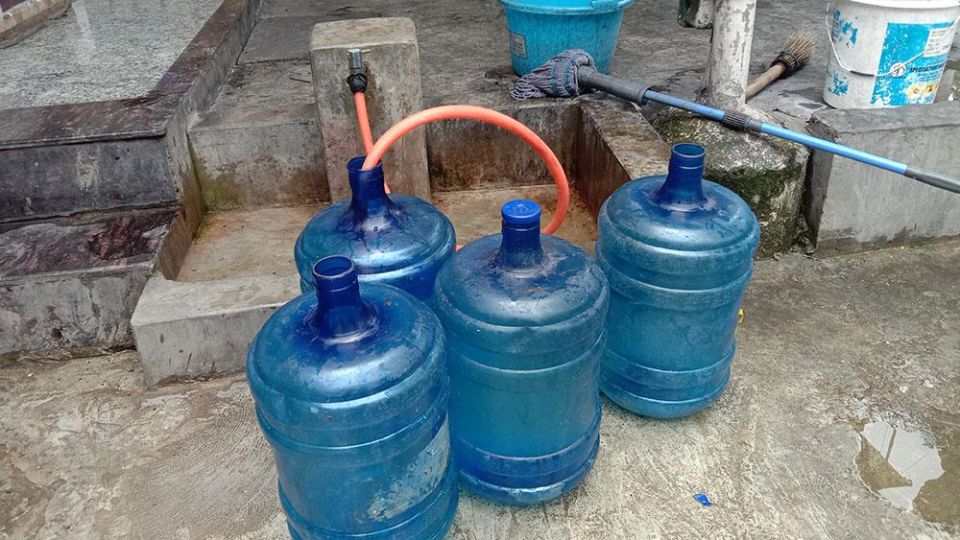May 16, 2025
PHUENTSHOLING – When a group of customers stepped into a popular momo restaurant in Phuentsholing’s town centre and asked for tea, the restaurant owner had to turn them down. The reason—there wasn’t enough water.
When they ordered homemade watermelon juice instead, only one glass could be offered.
“I could not make more because there was no water,” the restaurant owner said.
That’s how bad the situation was when the water outage in Phuentsholing lasted for three days, disrupting daily life and local businesses. Residents said they did not receive from Sunday onwards.
Hotels and restaurants were among the hardest hit. While some hotels managed to operate using water stored in underground tanks, smaller eateries were forced to shut early or close entirely.
“There was no water even to wash dishes, let alone cook or clean,” said Chimi, a restaurant owner.
Many reported partial or full shutdowns during the disruption.
For residents, the outage made it difficult to maintain hygiene at home. Households with school going children struggled to prepare them for school. Kitchens remained unwashed, and activities like bathing or laundry were affected.
“It is not just about drinking water. It is about hygiene, and when water doesn’t come for days, it affects everything,” said one resident.
Residents questioned the thromde’s preparedness, with many pointing out that despite paying taxes, they received little support during the crisis.
Water tankers, they said, were either not dispatched or could not meet the demand. Even when they did arrive, the water often had to be carried up manually, as tankers were unable to pump water to rooftop storage tanks.
With no alternative, some residents hired workers to fetch water from the Zangdopelri public tap, the only functioning source during the period.
“I paid over Nu 800 just to get water from there,” said one resident.
Some said the cost and distance made it difficult to rely on this source.
According to the Phuentsholing Thromde, the crisis was triggered by a short circuit and oil leakage that damaged a transformer critical to powering the water pumps.
Phuentsholing Thromde relies on groundwater sourced from borewells, which require electrical pumping. When the transformer failed, the supply was disrupted.
Thromde said that they worked with Bhutan Power Corporation and called in technicians from India to fix the issue. The transformer was reportedly repaired the same day, and water supply was restored by the following night.
The thromde added that door-to-door tanker services were arranged to meet essential needs, a claim disputed by several residents who said no such service reached them.
Officials said that the Thromde is now pushing long-term measures to reduce its reliance on groundwater.
Surface water sources from the Omchu and Amochu rivers have been tapped. The system at Omchu is complete and will be commissioned soon.
However, seasonal flooding has made surface water supply in Phuentsholing difficult, often damaging intake structures.
In addition, the thromde also plans to build overhead tanks in select locations in the next financial year, shifting to a gravity-based distribution system.
Once operational, this network is expected to supply water to the core town area, as well as Kabreytar, Dhamdara, Pipaldara, Toorsa, and Rinchending.
Residents, meanwhile, continue to call for improved infrastructure and better planning to avoid similar disruptions in the future.


